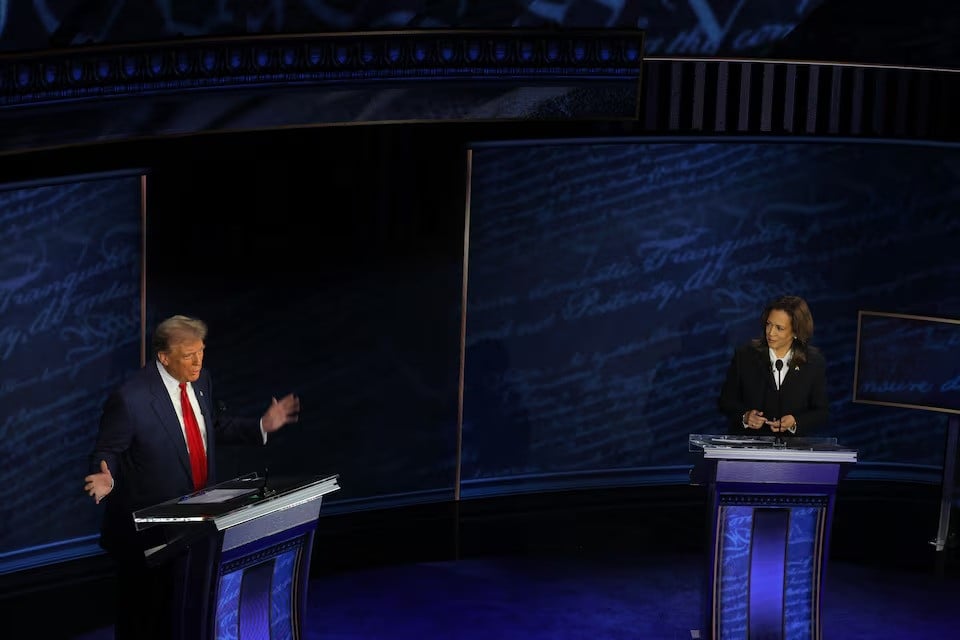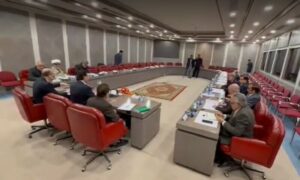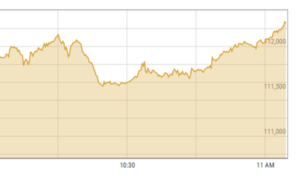PHILADELPHIA:
In their first presidential debate on Tuesday, Republican Donald Trump and Democratic Vice President Kamala Harris both sought to make an impact. Harris, 59, criticised Trump’s proposal for high tariffs on foreign goods, equating it to a sales tax on the middle class, while highlighting her plan for tax benefits for families and small businesses. She also blamed Trump for high unemployment rates during his presidency.
Trump, 78, countered by attacking the Biden administration’s handling of inflation, though he exaggerated the price increases. He shifted focus to immigration, making unsubstantiated claims about immigrants from “insane asylums” crossing the U.S.-Mexico border.
The debate, which started at 9 p.m. ET (0100 GMT on Wednesday), began with a handshake between the candidates, marking the first such gesture in a presidential debate since 2016. With the election on November 5 approaching and early voting soon to begin, the debate offered both candidates a critical chance to influence voters.
Harris, who joined the race only seven weeks ago following President Joe Biden’s departure, made a strong case against abortion restrictions, discussing the impact of state bans on women and victims of incest. She also claimed that Trump supports a national abortion ban, a claim Trump denied, asserting that Harris and Democrats support infanticide, which is illegal.
Harris connected Trump to Project 2025, a conservative policy plan proposing expanded executive power and other right-wing goals. Trump dismissed the link, though some of his advisers were involved in the project’s creation.
During the first 30 minutes, Trump avoided personal insults but later labelled Harris a “Marxist,” which elicited a reaction from her. Trump’s team had advised him to focus on inflation and immigration issues, despite improvements in both areas this year.
The debate, held at the National Constitution Center in Philadelphia and hosted by ABC News, had no live audience and muted microphones when not speaking. Harris prepared extensively in Pittsburgh, while Trump relied on informal preparation and advice from former Democratic congresswoman Tulsi Gabbard, who suggested Trump would treat Harris like any other opponent.







